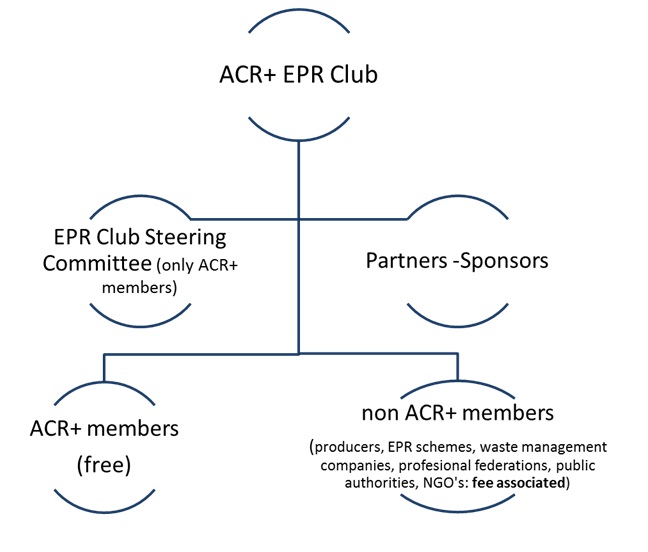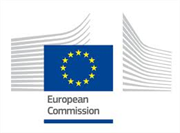Content
Report: Prevention and Recycling of Urban Waste
An Inventory of Approaches in 18 European Cities
Did you know that Europe produces 930 million tonnes of waste per year, including 132 million tonnes of household waste 1 ?
These 132 million tonnes of household waste, piled 30 metres high, would fill 1,000 football fields! In 1990, 68% of municipal waste was landfilled and 18% incinerated. In 1975, the Community Institutions began to introduce policies and measures to improve waste management. For example, the Member States were required to draft waste management plans and to introduce policies for prevention, recovery and recycling, with incineration and landfilling considered less desirable solutions (for a description of the Community regulatory context, see page 22).
Cities, where population density and therefore production of waste are higher, play an essential role in the management of municipal waste. For this reason, two networks of European cities - ACR+ and Energie-Cités - along with Agrital Ricerche, an Italian research and study centre, jointly presented a proposal to the European Commission (DG Environment) for a project intended to increase awareness on the part of local authorities and the media in four EU Member States - Spain, Italy, Ireland and the UK - concerning the need to elaborate local waste management strategies. This project is based on the experience of the REMECOM network (European Network of Measures for Classification of Household Waste; see page 2) as an example of exchanges between cities regarding methods of analysis and measurement of the volume of household waste at local level.
Media-Com : a means of increasing awareness and a collection of examples of "good practice"
ACRR has participated in the MEDIACOM project, co-ordinated by Energie-Cities in the framework of a convention with DG Environment.
The report "Prevention and Recycling of Urban Waste : An Inventory of Approaches in 18 European Cities" was published in English, French, Italian and Spanish in January 2000.
The final publication has been sent to ACRR members and to municipalities and local authority representatives mainly in Spain, Italy, UK and Ireland.
You can download the publications free of charge:
- English version (519Kb)
- version française (525Kb)
- versione italiana (1.071Kb)
- versión española (523Kb)
As a result of this proposal we have produced Media-com, a method for raising awareness of waste management based on descriptions of "good practice" in 18 cities in eleven countries of the EU. Some of these cities participated in the REMECOM network and adopted its methodology, while others chose to remain independent of REMECOM, in hopes that their own waste management practices could serve as an example to others. All these practices are described in an attractive, non-technical style and are supported by statistics and simple technical information, as well as illustrations. This document, which could also be termed a collection of "good practices", constitutes a source of information and ideas for local authorities and the media. We sincerely hope this document is a positive contribution to all initiatives taken in Europe to improve local management of household waste and thereby to promote integrated and sustainable urban development.
1 : Figures for 1990 Source : Commission Communication on a re-examination of the Community strategy for waste management - COM (96) 399 final.
For more information, you can freely download the full table of contents here:
Download the full report (free):
For non-members, the report can be ordered by filling in the form. You will receive the report after payment of the invoice. See price list here.
European EPR Club launch event

4th June 2012, Brussels
Extended Producer Responsibility (EPR), a powerful tool to increase material recycling to reach a European Recycling Society. The EPR Club, a platfom for exchange and debate about EPR in Europe amongst key stakeholders and experts.
We invite you to discover the new European EPR Club during a seminar and networking event.
Launch event information:
|
Title: |
ACR+ EPR Club Launch Event |
|
When: |
4th June 2012, from 15:30 |
|
Where: |
European Economic and Social Committee, Rue Belliard 99, 1040, Brussels |
|
Programme: |
Download the programme of the event |
|
Registrations: |
Registration form: Word format / Pdf format Form to be sent before 29 May to This email address is being protected from spambots. You need JavaScript enabled to view it.This email address is being protected from spambots. You need JavaScript enabled to view it. or by fax at +32 2 234 65 01 (registration is free, but the number of seats is limited) |
<><>
|
This event is organised in partnership with: |
With the support of: |
Under the patronage of Mr. Janez Poto?nik,
European Commissioner for the Environment
- Read the press release of the event
European EPR Club activities
 The EPR Club consits of a combination of Interactive web-based activities and networking events allowing the exchange of information and views.
The EPR Club consits of a combination of Interactive web-based activities and networking events allowing the exchange of information and views.
The web-based platform will mainly consist of:
• Background information on the EPR-related topics + position papers of EPR Club Members
• Online forums focused on specific questions
• Virtual library and working space allowing to share information and positions
• Regular webinars (monthly) with possibility of interactive debate
The work on the “virtual” platform will be completed by physical meetings:
- 2 main EPR Club events with the involvement of EPR Club members or external partners:
• 1x Launch Event in Brussels on 4th June 2012
• 1x Event sponsored by interested and relevant stakeholders on specific theme/topic in September 2012
- Annual EPR Club Conference in January 2013
Some of those topics will be debated at EPR CLUB level:
• Competition under EPR schemes
• Common principles for EPR in Europe
• EPR schemes and plastics recycling/recovery or EPR schemes to fight against marine litter• Waste shipments and free riders
• Role and objectives of EPR vs other economic and legal instruments
• The relations between public and private sectors, and the specific place of municipalities
• Performances benchmarks for specific EPR in Europe
• The need for a differentiated approach for municipal and non-municipal waste
• EPR for biowaste
• Healthcare EPR schemes
Join the European EPR Club

ACR+ has created the EPR Club, a new exchange platform on EPR schemes in Europe aiming at benchmarking on recycling performances, European harmonization, fair competition, public control or best practices
New Extended Producers Responsibility (EPR) schemes are developed all around Europe, promoted by the European Institutions as a powerful tool to increase recycling of packaging, electronic waste, batteries and other types of waste. Consumers, producers, public authorities and waste management operators are all concerned by these new evolutions.
Benefits to become a member of EPR Club
- Free access to all web based platforms: virtual library, online forum, news update
- Free participation in EPR Club activities: thematic working groups, events, webinars, conferences
- Publish and share your own position/reviews on specific EPR thematic topics within the EPR Club and beyond
- Debate, network and exchange of experiences with other EPR Club members
- Contribute to the evolution of EPR in Europe and identify upcoming challenges and opportunities
TYPES OF MEMBERSHIP
|
TYPE OF MEMBERSHIP |
FEE IN EUROS (PERIOD COVERED: 2012-2013) |
|
Standard membership |
500 |
|
NGO & academics |
150 |
|
ACR+ members |
FREE |
JOIN NOW!
If you are interested to join the EPR Club, please click here to fill in the form
European EPR Club structure







